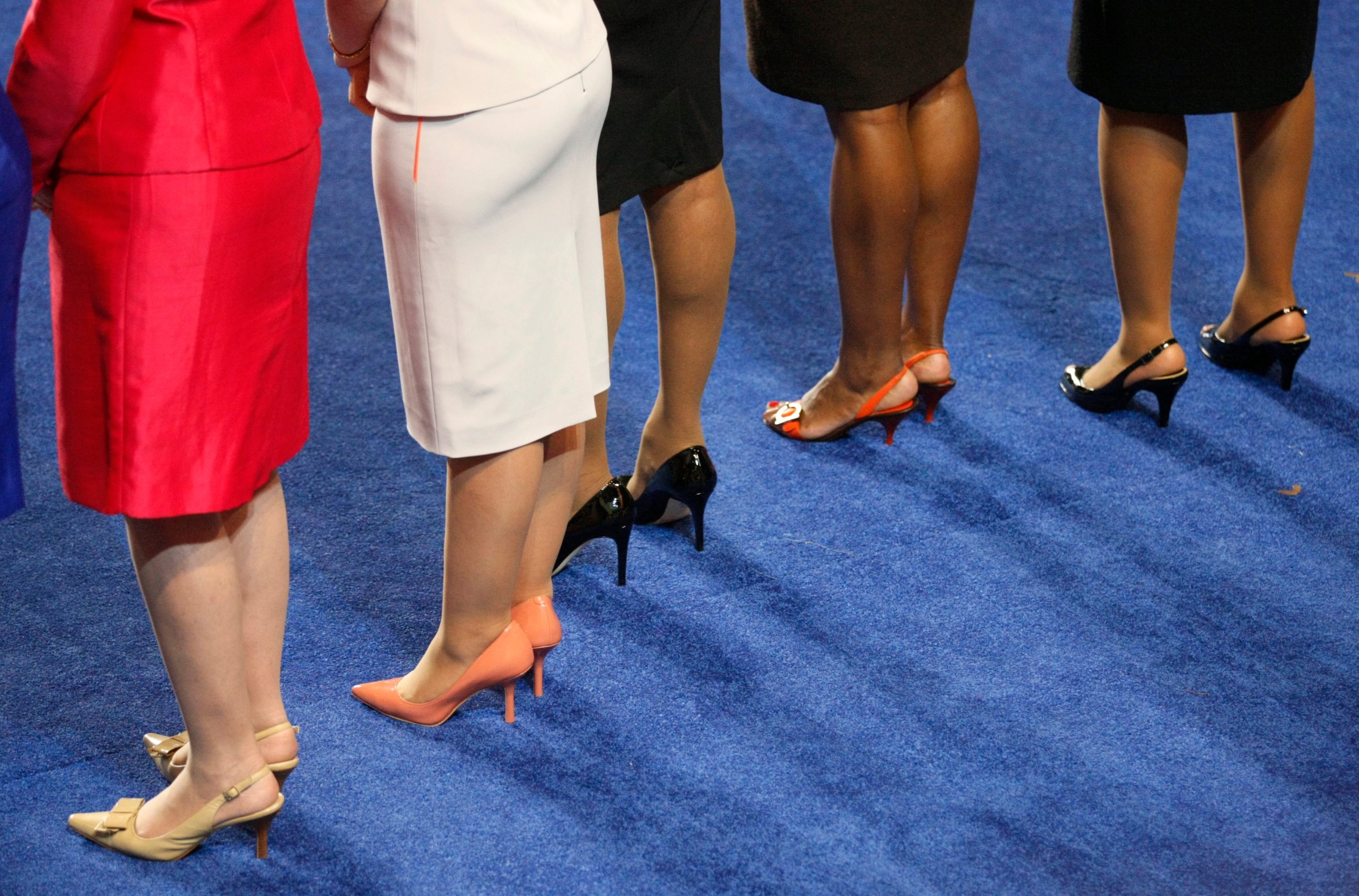
We might have guessed this to be true, but now science proves it: overweight women are much less likely to hold political office than their overweight male counterparts or their skinny female counterparts.
New research published Monday in the journal Equality, Diversity and Inclusion found that skinny political candidates get more votes than overweight ones. The researchers looked at the sizes of candidates from 126 primary and general elections from 2008 and 2012 and compared it to the number of votes they received. “The greater size disparity between candidates, the greater the vote share of the more slender candidate,” Michigan State professor and co-author of the study said.
But while overweight men have a chance of winning an election, many overweight women don’t run at all:
Both obese men and women were less likely to get on the ballot in the first place. When it came to merely being overweight, women were underrepresented on the ballot, though men were not. This is consistent with previous research showing men who are slightly heavy tend not to experience discrimination like that of slightly overweight women.
The reason an overweight women are less likely to put their names on the ballot? Two studies published in the journal Social Psychological and Personality Science last week found that the more “feminine” a female candidate looked, the more likely she was to win an election. (This was especially true in conservative states.) The same was not true of men: more masculine-looking candidates did not have an advantage over less masculine ones.
The mounting evidence that women candidates are much more likely to be judged by their looks is certainly depressing, especially if it is deterring capable women from deciding to run.
More Must-Reads from TIME
- Why Trump’s Message Worked on Latino Men
- What Trump’s Win Could Mean for Housing
- The 100 Must-Read Books of 2024
- Sleep Doctors Share the 1 Tip That’s Changed Their Lives
- Column: Let’s Bring Back Romance
- What It’s Like to Have Long COVID As a Kid
- FX’s Say Nothing Is the Must-Watch Political Thriller of 2024
- Merle Bombardieri Is Helping People Make the Baby Decision
Write to Eliana Dockterman at eliana.dockterman@time.com